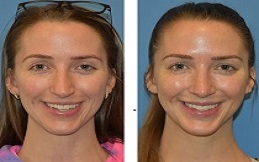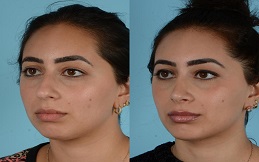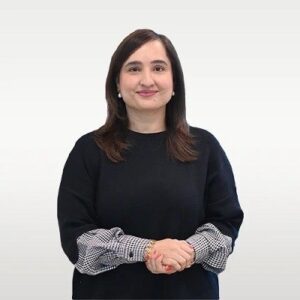
Facial reconstructive surgery in Islamabad addresses a pressing issue: physical trauma or congenital defects that affect the facial area or its usefulness. This is because individuals undergo accidents, birth defects or complications, and other medical procedures that cause them great physical and emotional trauma. This can lead to negative effects such as low self-esteem and problems regarding relationships and interactions.
The issue is dealing with these challenges and regaining balance, stability, and positive self-images. Facial reconstructive surgery provides the remedy by reconstructing and rebuilding facial structures.
What is Facial Reconstructive Surgery?
Facial reconstructive surgery deals with reconstructing faces that have been deformed for one reason or another, such as through accident or birth defects. This surgery can be performed as an aesthetic or reconstructive surgery to restore normalcy of the face and body.
Facial reconstructive surgery encompasses a wide field, comprising several operations to correct different defects. Common types of procedures involve:
- Reconstruction after Injury: Recovery from injury or trauma that may result from an accident.
- Cleft Palate Surgery: surgical operations to correct birth abnormalities that impact the mouth and nostrils.
- Facial Reconstruction for Cancer Patients: Wound healing following surgery for facial cancer.
- Scar Revision: Scar reduction associated with injuries or any kind of surgery.
Aim of the Treatment / How Does It Work?
- Its main objectives are to correct asymmetry in the face, increase functionality, and increase self-esteem with regard to aesthetics. This type of surgery is effective by its methods and its approach in every specific case. Surgeons use advanced techniques such as:
- Tissue Grafting: Transfer of damaged or missing body tissue from one body area to another with normal tissue.
- Flap Surgery: Transferring a tissue section from one location to another with arrangements for correcting imperfections.
- Implants: Surgery for putting inanimate objects inside the face to reconstruct lost form and function.
Results:
The changes after a facial reconstructive operation may be dramatic. The patient benefits from quick healing in addition to improved aesthetics and function of the skin grafts received. The surgery is focused on the face since it is expected to treat marks and injuries and bring balance to the face. The expected outcome is improved balance in the face and facial movements and improved self-esteem.






Before Vs. After:
Several cases demonstrate transformations before and after the procedures are carried out, depicting their efficiency. Pre- and postoperative pictures of the patients highlight improved facial aesthetics and the reconstruction of normal features, pointing to the beneficial effects of facial reconstructive surgery.
Ideal Candidate:
- Should be in a healthy general state, and have no chronic illnesses that may hinder the healing process.
- Indicated in cases of facial trauma, congenital anomalies, or diseases of facial beauty and motor control.
- Should have reasonable expectations concerning the outcome and know that surgery can enhance the face’s aesthetic but can not be perfect.
- Emotional stability is necessary here as the process can be a struggle and involve changes in self-image.
- Smoking has an effect on the healing process, so one must be a non-smoker or willing to quit smoking.
Pre-Treatment:
Choose the right surgeon to perform the procedures and discuss the planned goals and potential outcomes. This helps in making the right decisions since one is able to understand the process.
Get a medical check-up to confirm the candidate’s fitness before taking on this challenging job. It may involve blood tests, X-rays, and other scans to determine the severity of the problem and schedule the surgery.
Some medications and supplements may affect clotting, so make sure you tell your surgeon is taking them. Some might have to be regulated or halted before the surgery.
Adhere to any preoperative guidelines that the surgeon might set, including no food restrictions and stopping smoking if needed.
Organize for help during recovery, as you may need assistance in some tasks as you recuperate.
Procedure:
Preparation: You will be operated under general anesthesia to ensure that you do not feel any pain during the surgery. This may be general, where you are asleep, or local, where there is a loss of feeling in the area where the operation will be performed.
Surgical Process: The surgeon then proceeds to make small, strategic cuts on the skin to reach the tangled, injured, or otherwise compromised hair follicles. Based on the kind of surgery being performed, tissue grafting, flaps, or implants may be employed in reconstructing or repairing facial parts. It’s important to note that the complexity of the surgery can depend on the required reconstruction.
Duration: The surgery commonly takes one to five hours, depending on the type of surgery.
Recovery: Tissue swelling and ecchymosis are typical, and you may require hospitalization for a few days.
Aftercare:
- Follow your surgeon’s after-surgery directives regarding medications, ointments, or dressings to the letter.
- Rest as much as possible and avoid activities that can strain you. Your body requires a break to heal, so remain idle and adhere to any limitations regarding physical activities.
- Put some ice packs on the area affected to minimize swelling and black and blue marks. To reduce swelling, avoid lowering your head while sleeping; keep your head up while sleeping.
- Cleans the operation site as recommended to shun the likelihood of acquiring an infection. Do not touch or scratch the area that has been operated on.
- Monitor for any sign of infection, including worsening redness or discharge in the operative area, and report these changes to your surgeon.
- Partake in all subsequent appointments to allow the concerned body part to heal adequately.
Benefits:
Improves facial balance and appearance and improves one’s self-esteem.
Regains abilities in the facial region, such as speaking, eating, and breathing.
Grows an individual’s self-esteem and makes them feel more at ease.
Gives long-term solutions to the shaping of the face and its working parts.
Side Effects:
Common Risks:
- Swelling and Bruising
- Pain and Discomfort
- Infection
Less Common Risks:
- Scarring
- Numbness
- Asymmetry
Rare Risks:
- Blood Clots
- Anesthetic Complications
Best Surgeon for Facial Reconstructive Surgery in Islamabad:
For facial reconstructive surgery, Dr. Naveed Azhar is highly recommended. He is famous for his peculiar and effective methods and results in the field of facial reconstruction surgeries.
Dr. Azhar is well respected and has a record of delivering quality work that meets and satisfies the patient’s expectations. His work is accurate and meticulous yet perceptive, addressing not only the look of the objects but also their function. Experienced with several successful surgeries and happy patients, Dr. Naveed Azhar is one of Islamabad’s top Facial Reconstructive Surgery surgeons.
Cost of Facial Reconstructive Surgery in Islamabad:
The cost of facial reconstructive surgery in Islamabad ranges from PKR 50,000 to PKR 150,000. However, the price can vary depending on the necessity and other considerations.
- Surgeon’s Fee
- Hospital or Clinic Charges
- Pre-Surgical Consultations.
- Post-Surgical Care
- Complexity of the Procedure
- Surgeon’s Expertise.
- Facility Location and Quality
Book a Free Consultation:
For further information on facial reconstructive surgery, visit the Dynamic Clinic PK website and navigate to the Consultation or Appointment sections. Either fill out the contact form or use the phone number given to book your free consultation. Enter your personal information and, in a few words, describe your situation or question regarding facial reconstructive surgery.









